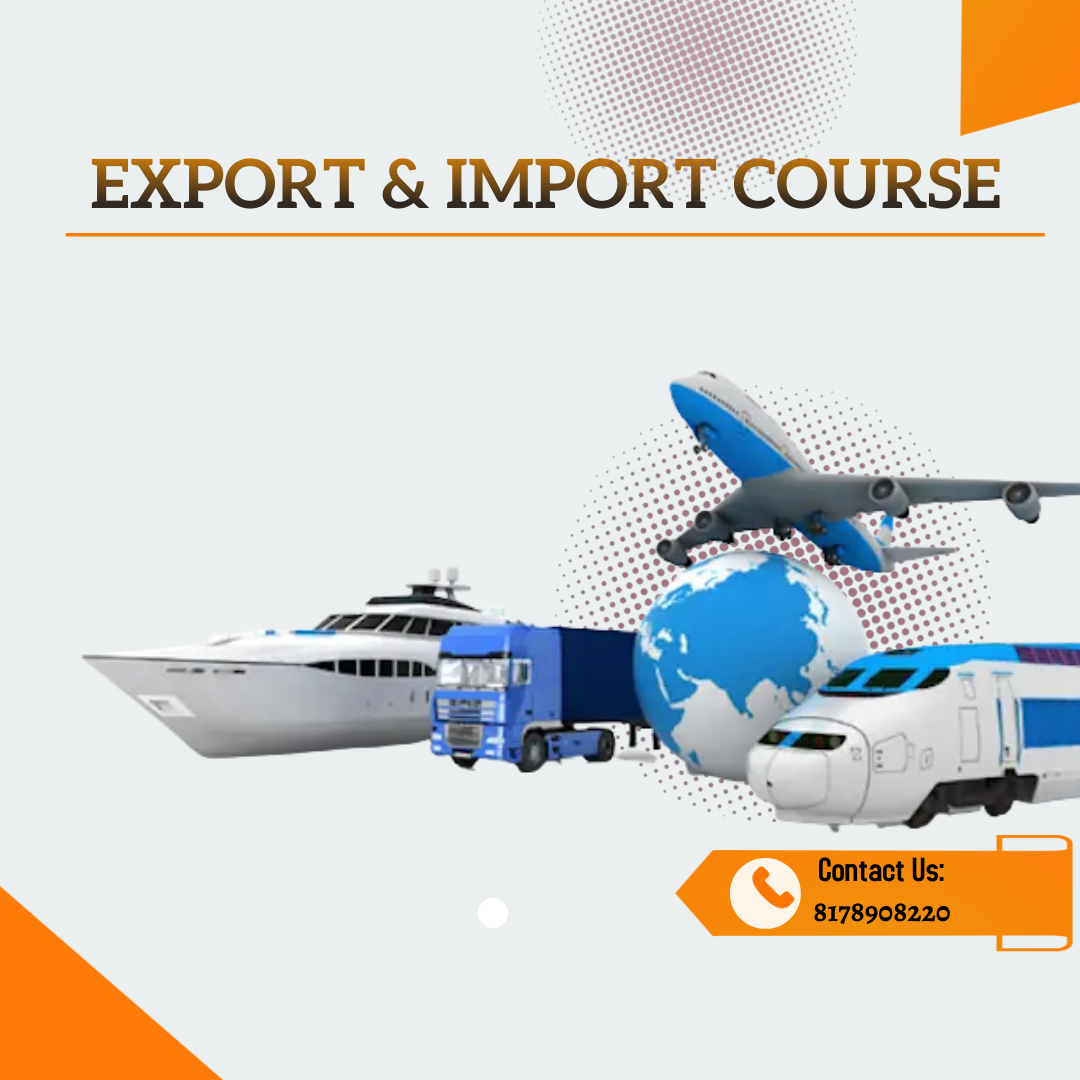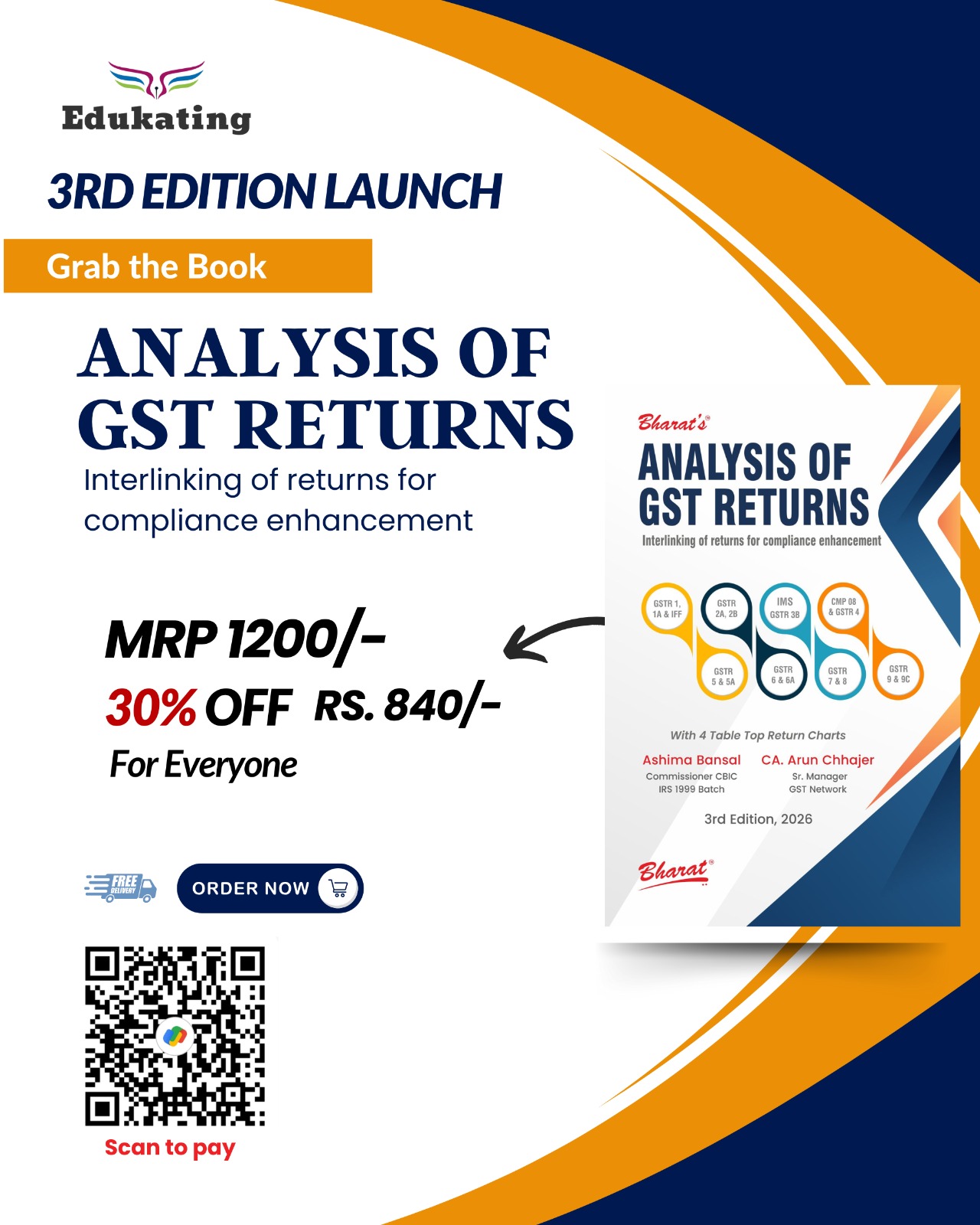Intermediary Under GST
In this article , we will cover the Concept Scope of Intermediary and its services:
- Who is an Intermediary?
Section 2 (13) of the IGST Act has defined an Intermediary as : “Intermediary means a broker, an agent or any other person, by whatever name called, who arranges or facilitates the supply of goods or services or both, or securities, between two or more persons, but does not include a person who supplies such goods or services or both or securities on his own account.
The concept of Intermediary has been adopted and brought forward into GST from the Service Tax Regime.
As per Rule 2(f) of Place of Provision of Services Rules, 2012 , Intermediary means a broker, an agent or any other person, by whatever name called, who arranges or facilitates a provision of a service (hereinafter called the ‘main’ service) or a supply of goods, between two or more persons, but does not include a person who provides the main service or supplies the goods on his account
On comparing the definition of Intermediary under GST as well as Service Tax Regime , it is crystal clear that there is broadly no change in the scope of of intermediary services in the GST regime vis-à-vis the Service Tax regime, except addition of supply of securities in the definition of intermediary in the GST Law.
- What are the Prerequisites of Intermediary Services?
The Prerequisites for Intermediary Services are as follows :
- Minimum of Three Parties : By the definition , an intermediary is someone who arranges or facilitates the supplies of goods or services or securities between two or more persons. It is thus a natural corollary that the arrangement requires a minimum of three parties.
The three parties to constitute an Intermediary Service are
- Two of the parties transacting in the supply of goods or services i.e. the main supply.
- The one arranging or facilitating the main supply i.e. Ancillary Supply.
Therefore , going by the above provisions , it is evident that any transaction between 2 parties shall not constitute Intermediary Service.
Example 1: X , an wholesaler buys goods directly from Y , a manufacturer. Since , only 2 parties are involved in this transaction. Therefore , it cannot be termed as Intermediary Service.
Example 2 : ‘X’ is a manufacturer and supplier of machines. ‘Y’ helps ‘X’ in locating potential client ‘Z’ to sell his machines and finalises the contract of supply of machines by ‘X’ to ‘Z’. In consideration for his services rendered to ‘X’ , ‘Y’ charges commission for which he invoices ‘X’ and the payment of the same is released by ‘X’ to ‘Y’.In this example , ‘X’ and ‘Z’ are the two parties transacting in the supply of goods or services (i.e. main supply). In this arrangement, ‘Y’ is providing the ancillary supply of arranging or facilitating the ‘main supply’ of machinery between ‘X’ and ‘Z’ and therefore, ‘Y’ is an intermediary and is providing intermediary service to ‘X’.
- Two Distinct Supplies : As discussed above, there are two distinct supplies in case of provision of intermediary services :
- Main supply: It is between the two principals, which can be a supply of goods or services or securities;
- Ancillary supply: It is the service of facilitating or arranging the main supply between the two principals. This ancillary supply is the supply of intermediary service and is clearly identifiable and distinguished from the main supply.
A person involved in supply of main supply on principal to principal basis to another person cannot be considered as supplier of intermediary service.
- Intermediary service provider to have the character of an agent, broker or any other similar person :
The definition of the intermediary is not inclusive but uses the expression ‘means’ , and does not expand the definition by any known expression of expansion such as “and includes”.The use of the expression “arranges or facilitates” in the definition of “intermediary” suggests a subsidiary role for the intermediary.
Therefore , It must arrange or facilitate some other supply, which is the main supply, and does not himself provide the main supply. Thus, the role of intermediary is only supportive.
- Does not include a person who supplies such goods or services or both or securities on his own account:
The definition of intermediary services specifically mentions that intermediary “does not include a person who supplies such goods or services or both or securities on his own account.”Use of word “such” in the definition with reference to supply of goods or services refers to the main supply of goods or services or both, or securities, between two or more persons, which are arranged or facilitated by the intermediary , implies that in cases wherein the person supplies the main supply, either fully or partly, on principal to principal basis, the said supply cannot be covered under the scope of “intermediary.”
- Sub-Contracting for a service is not an intermediary service:
Sub-Contracting is an important exclusion from Intermediary Services.The supplier of main service may decide to outsource the supply of the main service, either fully or partly, to one or more sub-contractors. Such sub-contractor provides the main supply, either fully or a part thereof, and does not merely arrange or facilitate the main supply between the principal supplier and his customers, and therefore, clearly is not an intermediary.
Example : ‘A’ and ‘B’ have entered into a contract as per which ‘A’ needs to provide a service of, Annual Maintenance of tools and machinery to ‘B’. ‘A’ subcontracts a part or whole of it to ‘C’. Accordingly, ‘C’ provides the service of annual maintenance to ‘A’ as part of such a sub-contract, by providing annual maintenance of tools and machinery to the customer of ‘A’, i.e. to ‘B’ on behalf of ‘A’.
Even though ‘C’ is dealing with the customer of ‘A’, but ‘C’ is providing the main supply of Annual Maintenance Service to ‘A’ on his own account, i.e. on a principal to principal basis. In this case, ‘A’ is providing the supply of Annual Maintenance Service to ‘B’, whereas ‘C’ is supplying the same service to ‘A’. Thus, supply of service by ‘C’ in this case will not be considered as an intermediary.
(3) What would be the Place of Supply for Intermediary Services?
- The specific provision of place of supply of ‘intermediary services’ under section 13 of the IGST Act.
- Section 13 shall be invoked only when either the location of the supplier of intermediary services or location of the recipient of intermediary services is outside India.
The Provision of Section 13(1) would apply to determine the place of supply of service where the location of supplier of services or location of recipient of services is outside India.
Section 13(2) of IGST Act states that , The place of supply of services except the services specified in sub-sections (3) to (13) shall be the location of the recipient of services.
As per Section 13(8)(b) of IGST Act , Place of supply of services in case of an intermediary services , shall be the location of supplier of services.
Example : An insurance company ‘P Co.’, located outside India, requires to process insurance claims of its clients in respect of the insurance service being provided by ‘P Co.’ to the clients. For processing insurance claims, ‘P Co.’ decides to outsource this work to some other firm.
For this purpose, ‘P Co.’ approached ‘Q’, located in India, for arranging insurance claims processing service from other service providers in India. ‘Q’ contacts ‘R’, who is in business of providing such insurance claims processing service, and arranges supply of insurance claims processing service by ‘R’ to ‘P Co.’. ‘Q’ charges ‘P Co.’ a commission or service charge of 1% of the contract value of insurance claims processing service provided by ‘R’ to ‘P Co’. In such a case, the main supply of insurance claims processing service is between ‘P Co.’ and ‘R’, while ‘Q’ is merely arranging or facilitating the supply of services between ‘P Co.’ and ‘R’, and not himself providing the main supply of services.
Accordingly, in this case, ‘Q’ acts as an intermediary as per definition of sub-section (13) of section 2 of the IGST Act.






























































